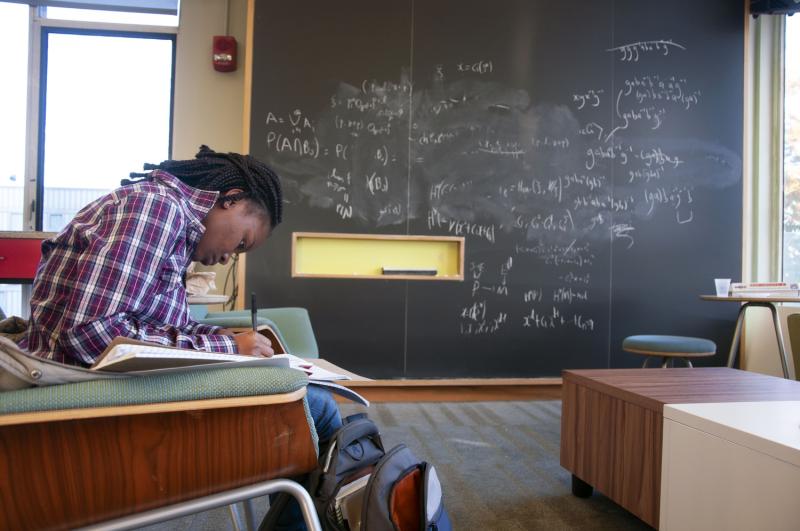Harvard Launches New Intro Math Course to Address Pandemic Learning Loss


The Harvard Math Department will pilot a new introductory course aimed at rectifying a lack of foundational algebra skills among students, according to Harvard’s Director of Introductory Math Brendan A. Kelly.
The course, titled Math MA5, will run alongside two established math courses — Math MA and MB — with an expanded five-day schedule.
Kelly said that students in MA5 will meet with “one of two instructors all five days” with “a variety of different activities” on Tuesdays and Thursdays.
He said the Covid-19 pandemic led to gaps in students’ math skills and learning abilities, prompting the need for a new introductory course.
“The last two years, we saw students who were in Math MA and faced a challenge that was unreasonable given the supports we had in the course. So we wanted to think about, ‘How can we create a course that really helps students step up to their aspirations?’” he said.
“Students don’t have the skills that we had intended downstream in the curriculum, and so it creates different trajectories in students’ math abilities,” Kelly added.
Despite the schedule differences, MA5 will reflect the material and structure of MA and MB, collectively known as Math M.
“Math MA5 is actually embedded in Math M,” Kelly said.
“They’ll have the same psets, they’ll have the same office hours, they’ll have MQC, they’ll take the same exams,” Kelly added, referring to the department’s Math Question Center. “So if you’re in MA5, you will experience Math M.”
In addition to traditional placement tests, freshmen who placed into Math MA or 1A were required to take an additional skills check to determine their recommended enrollment.
He said the department “investigated a number of different strategies” used by different schools when assessing how to address students’ skill gaps.
“What we thought was the best thing to do — instead of adding another course before MA — was to add more time and support into MA for students who would need it.”
Kelly added that the choice to supplement Math M is intended to support students who face early challenges in their math courses.
“If the first one doesn’t go well, it can really make these lasting waves in their pathways,” Kelly said. “We want to avoid that. We want to make sure that students are on a path to success starting from their first day.”
Kelly acknowledged the difficulties that students in MA5 may face because of the course’s demanding time commitment, but said the daily meeting schedule is a necessary trade-off for students’ development.
“Five days a week does make it hard for some students’ schedules, and we thought about that in the planning, but we do really think that five days a week is — in the trade off — it’s gonna be worth it,” Kelly said.
—Staff writer S. Mac Healey can be reached at mac.healey@thecrimson.com . Follow him on X @MacHealey .






Harvard deemphasized standardized testing to avoid allowing students on merit, rejected kids with perfect standardized testing scores and now has to offer a course for remedial algebra that's more appropriate at the local Juco.
Given their admissions standards, seems like this was unavoidable.
remedial classes at Harvard? I thought you had to be really smart to get in there
Odd right? Some of the smartest people in the world get rejected, yet enough struggle with high school math that a remedial course had to be developed for them.
It's probably because they aren't letting the colored kids in anymore....
I don't think that is the problem
One of the more ignorant comments I’ve seen here in awhile.
I think the problem is that we have more "Trump" type students than "Obama" type students. The government (courts) won't let the colleges "discriminate", so the good black and brown and other students just applied somewhere else to remove the potential stigma of being a "DEI" student. Basically, they said "fuck you" to Harvard, so now only the rich white daddy's kids are applying, making the pool to choose from much more remedial in nature.
Except for this became an issue as soon as Harvard stopped requiring standardized testing for admissions.